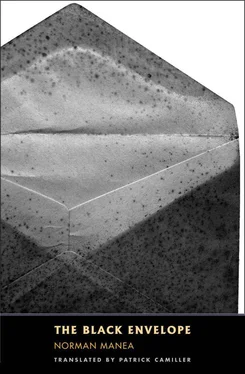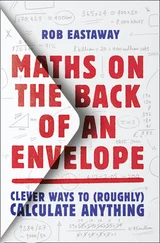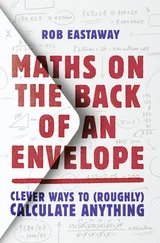“You know the scenario. Two-stage operations. An internal reform was proposed to Austria, then it was claimed that she did not respect it. The Sudeten Germans placed demands on Czechoslovakia; then a decision was made to support the Slovaks, supposedly oppressed by the Czechs. Finally: an ultimatum. That was the Führer’s technique of making gradual headway!”
In vain did the listener try to close his ears and leave the ground again; he always came crashing down like a fly, right in front of the Atlantic liner of Gafton’s imposing foot, size 46.
“Let’s go over it once again, Professor. Sir Neville Henderson, the British ambassador, is summoned by the clownish corporal on the evening of August 29. The Germans demand Danzig, but also the Corridor, until Wednesday, August 30. The ambassador’s telegram reaches London on August 29, at 22:25. It has to be decoded, then another telegram is coded to the British ambassador in Warsaw.”
Matei knew it all. But it was about something else that Comrade Gafton really wanted to speak. Not about Sir Neville Henderson. He would have liked to prove his perfect honesty when he had joined the struggle against the Nazi butchers: that would be his excuse for having agreed to do what he did even after they were defeated; it would be the explanation and the excuse, frater, dulcissime …
“Toward midnight on the evening of August 30, Sir Neville Henderson proposes to Ribbentrop that the German plan be delivered to the Polish ambassador. To no purpose. What happens next, on August 31, 1939, you probably know. At 9:50 Sir Neville makes a telephone call to Coulondre, the French ambassador in Berlin, and warns him of the gravity of the situation. At ten o’clock the reply is received from Paris: the Polish government accepts and will confirm in writing that it is prepared to hold direct talks with the German government, and undertakes not to deploy troops during the negotiations if it receives the same guarantee on the part of the Germans. At 21:00 Radio Berlin broadcasts proposals which, as a matter of fact, are quite reasonable. The plan, states the German communiqué, has been rejected by the Poles. Yet the Poles had not even seen these proposals.”
The speaker’s attempts to gauge a reaction were of no avail, any more than were the efforts of colleague Gina at the Hotel Tranzit reception to read the professor’s mask, at eleven o’clock on Friday, when Tolea, looking at the keyboard in front of him, was deep in thought about images from his last meeting with neighbor Gafton. Absolutely nothing did Matei detect; nothing were the persistent green eyes of Gina the cop able to make out. “You know what followed. But perhaps you don’t know how the first of the accelerated conversations at the end of August actually proceeded. On August 25 Hitler was calm, haunted by melancholy, at his meeting with Henderson. He regretted that Germany had become a barracks. That’s what he said. He did not want to go down in history as a warmonger. He was an artist. That’s what he had been and that was what he wanted to become again! He was dying to withdraw from political life.”
“Herr Adolf an artist? Absolutely not. Zilch! The artist was priestly Dzhugashvili, not painterly Adolf. The Georgian understood the power of ambiguity, its quite limitless power. And he encouraged people to measure up to it: to become anything, with no limits as to race, sex, belief, or other such nonsense. He understood that the victim can become a butcher if he doesn’t actually want to, and that it’s a game which has no limits. If that cretin of yours had really been an artist, he would have understood that. And if he’d understood it, the game would have been different. What a dilemma the chosen people would have had then.”
Had Tolea actually spoken those words? Had he interrupted his neighbor Gafton’s speech, or was he merely interrupting it now, mentally, as he recalled the scene?
“What if your old deadbeat Adolf had offered limitless scope for changing one’s skin? Then you’d have seen dilemmas, conversions, overzealousness, sudden turnarounds in the situation. Then you’d have seen what a noble wild beast is that humanist fellow creature of ours as he scurries to save his hide. Maybe Adolf would have won the game — who knows? — if he’d been an artist. But no, he didn’t understand his great chance, the great experiment. He was no artist, really he wasn’t. There’s no comparison between him and the priest from Georgia. No comparison, Matei, believe me. That one was an artist, all right! He even knew how to make use of the other one’s tricks, of anything he could turn to advantage: nationalism, internationalism, atheism, religion, anything at all. Look around you, Matei, old man. What a fantastic combination! Look around at the mind-boggling work that’s been done. Just open your eyes and look around.”
But Tolea had remained silent, probably. He was not in the habit of interrupting the rhetorical pleasures of neighbor Gafton; he usually preferred to doze with his mind elsewhere. Neighbor Matei measured his speech without any haste, leaning from time to time toward his apathetic listener. He knew that Tolea would not interrupt him. And he was used to his bored smile; for a long time now there had been nothing new in that arrogant hotel receptionist’s smile, and in fact, it did not bother him at all. As he took aim at some imaginary audience or other, Mr. Gafton sometimes gave the impression — for anyone disposed to notice the fine accents and devices of his score — that he thought of himself not only as the narrator of the events he kept reading about in the library but as an actual protagonist, maybe even Henderson. Yes, Sir Neville, Sir Neville Henderson, that was it, no?
“Do you think I’d be too subjective to study those years properly? Well, you’re wrong, Tolea, quite wrong.”
The hesitant pause did not last long; it was merely a rhetorical effect, of course.
“Why can’t we discuss openly what happened? Why is the subject covered up in this country? Why here? Why is it impossible to talk about the genocide, the victims — you know what I’m referring to. Is it that I wouldn’t be objective if I were allowed to speak? Well, I would, I can tell you!” All that remained was to force out every proof and more of his absolute objectivity. “I can understand some of the justifications which— Yes, I understand, and I’m not just thinking of the fact that at first the madman exploited a certain resentment at the humiliating peace treaty of 1919. The same kind of thing was there even at Nuremberg. Do you remember Jodl, eh? The duty to the people and the fatherland is higher than any other! And he added: Would that in a happier future it can be replaced by a duty toward humanity. Has it been replaced? Has the happy future come, as the textbooks and speeches proclaim?” Suddenly a new and surprising idea carried him away. “Did Herr Hitler describe himself as an artist? Then why didn’t he allow Jews to become Nazis? It would have been an interesting experience, no? How would the play have developed in that case? Remember Italy and Mussolini before the racial laws: who was backing Mussolini then? No, it wasn’t our artist Herr Hitler! In fact, he couldn’t agree to try out something like that! He’d have felt wasted, cheapened. No, he wasn’t curious enough, nor playful enough.”
So finally the idea got through Mr. Matei’s skull, too. He quickly became worked up; he could hardly wait to get carried away: “Do you remember Sir Hartley Shawcross, the British prosecutor at the trials who said that they had no precedent in history? Why? What was his reason for saying that? The judgment on a war and an ideology had to show not only that the guilty were receiving their punishment but that good was vanquishing evil. It had to give voice to the simple man of our times. Do you hear that: the simple man of our times! You might think you’re at a course in Marxism-Leninism!
Читать дальше












